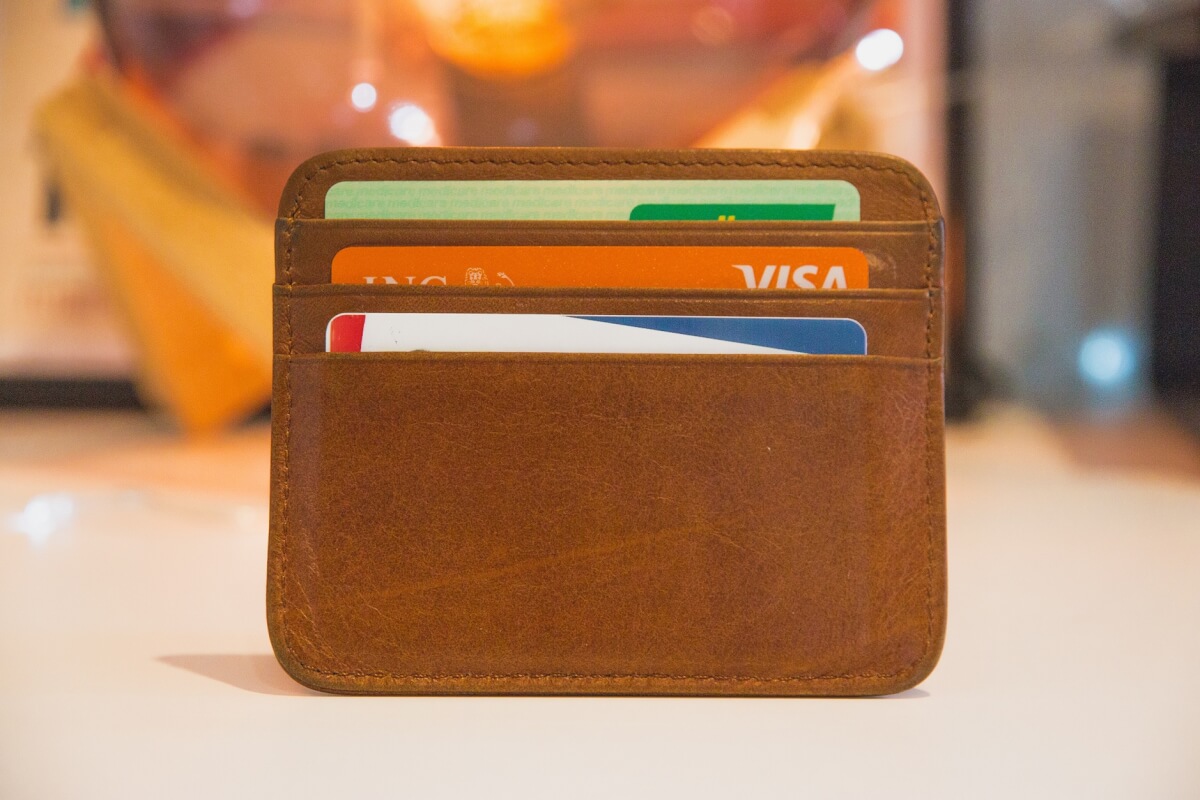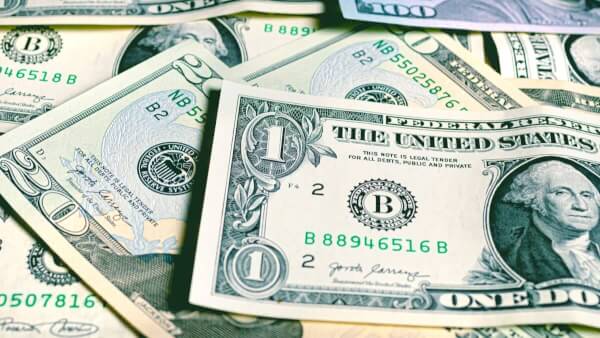Ria money transfer review: US guide [2025]
Here’s all you really need to know about making international transfers with Ria. We've done the research for you, so kick back and read on.

Secured credit cards are handy for people looking to build a credit history, who may not be eligible for regular credit cards. To get a secured credit card, you’ll pay a deposit, and by keeping a low balance and making timely repayments, you’ll build your credit score quickly.
| Table of contents: |
|---|
| Wise's multi-currency card can be up to 4x cheaper when spending abroad, compared to banks and Pay Pal. Get free access to 40+ currencies and bank details to use as a local for US, Australia, New Zealand, Europe and UK |
|---|
Having a credit card is handy for day to day purchases, and often a requirement if you’re booking a hotel or renting a car. However, to get approval for a regular credit card, you’ll need a credit history. That’s because most credit cards don’t require any sort of security in exchange for their benefits. Instead, the issuing institution takes a look at your credit history to decide if you’re trustworthy enough to lend to.
This can cause a problem if you have a poor credit history - or no credit history at all. If you’re a student and just starting to think about getting a credit card, if you’ve had problems with credit in the past, or if you’re a new arrival in the US, you may not be eligible for a regular credit card at all.
Secured credit cards usually require you to pay a deposit, and the credit limits on offer are typically on the low side - usually the same as the deposit you’ve handed over. However, they do let you build credit history quickly, which is useful if you want to ultimately apply for a regular credit card.
It’s also worth noting that the fees for secured credit cards might be higher than other card types. Interest on unpaid balance amounts can quickly mount up, for example.
If you’re looking for a card to make payments easier in stores and online - or to spend while you travel, you might also consider getting a Wise borderless Mastercard. You won’t build a credit history, but you could cut your fees compared with a secured card or regular credit card.
The borderless card is linked to the Wise borderless account - a smart new type of account you can use to hold balances in multiple currencies. Top up your account fee free in US, Australian or New Zealand dollars, euros or British pounds. Keep your money in whichever currency you want, and switch between currencies when you need to, using the mid-market exchange rate. There’s just a low transparent fee for currency conversion, and then it’s free to spend any balance you hold. That means you can avoid foreign transaction fees when shopping online or traveling - and send money cheaply to friends and family overseas, too.
| Check out Wise today to see if you can save |
|---|
Looking for the best secured credit card for bad credit? Or maybe you need the best secured credit card to build credit fast? Here’s a look at some of the most popular secured credit options out there.
Capital One Secured Mastercard¹
Deposits of $49, $99 or $200 and no annual fee. You may get an extended credit line once you have made 5 repayments on time, and can choose the best payment due date for your personal situation.
Citi Secured Mastercard²
Get a card with no annual fee, with a deposit from $200 to $2,500. Your credit limit will be equal to your deposit amount. Your deposit could be kept for at least 18 months, and can be used to cover the outstanding balance if your card is in default.
Discover It Secured³
Cashback on purchases (2%) , and no annual fee. You’ll be able to choose your deposit amount, and each statement shows your FICO score so you can watch your credit history build.
Each card will come with its own terms and conditions, so you’ll need to confirm your eligibility when you apply. For the Citi Secured Mastercard, as an example, you’ll need to pass Citi’s credit assessment, and can’t have been made bankrupt in the previous 2 years.⁴ Credit assessments will typically look at your income and debt, as well as any other available credit information held on file.
Here’s an outline of the usual process when applying for a secured card.
A secured credit card isn’t the only option if you don’t have the credit history to get a regular credit card, or if you need to build credit history. Depending on your needs, an alternative might mean lower costs and more flexibility. Here are a couple of ideas to think about.
If you’re eligible for an unsecured card, it’s worth comparing the fees and charges you might get against a secured card. Often unsecured cards are cheaper to use, making them a better choice for people with a strong credit history.
The Self Credit Builder is an interesting option if your intention is simply to build credit history. This is not a credit card, and you don’t need to pay a deposit. Instead, it’s a savings account which lets you build credit history by maintaining an agreed savings plan and holding your money for an agreed period. You’ll select a period from 12 to 24 months, and agree the amount you’ll pay every month. There’s an admin fee when you set up the plan, so you’ll need to check how the costs compare with alternative options.
With a prepaid debit card, you’ll top up your balance, and then use your card as you would any other debit card. Most prepaid cards can be used for shopping online and in stores, as well as for ATM withdrawals.
You can’t overspend on a prepaid card. Your card will simply be declined when you have run out of money in your balance. That means you can’t overdraw, and you won’t pay interest charges. However, there are other fees and charges associated with prepaid cards. These vary between cards, but you might find you have to pay a fee to top up your balance, to make ATM withdrawals or to spend in a foreign currency, for example.
If you want to use a card when you travel, or if you regularly send or receive international payments, a Wise multi-currency Mastercard might be the best option for you. The card links to a multi-currency account, which is easy to open and convenient to use.
You’ll be able to hold your money in different currencies, and check your balance at a glance in the Wise app. Switch between currencies as and when you need to, and spend and make withdrawals using your card anywhere you see the Mastercard logo. Because there are no foreign transaction fees, the Wise mastercard can work out much cheaper than alternative options for spending in foreign currencies.
Not sure if a secured card is right for you? Here are answers to some of the most commonly asked questions related to secured credit cards, to help you decide.
### What's the difference between secured and regular credit cards? To get a regular credit card, you’ll need a solid credit history. Card issuers check your credit score, and use this to decide whether or not to give you credit. Secured credit cards on the other hand might be issued to people with no credit history, or a relatively poor credit history, if they pay a deposit in advance of use.Secured credit cards are easier to get than regular credit cards for people with a limited or poor credit history. That said, you could still have your application turned down for a secured card if you don’t have any access to income, or if you have failed to pay your debts in the past.
Secured credit cards have benefits, and might be a good choice for some users. However, they also typically come with low credit amounts, and fairly high fees and interest charges.
If you want to build a credit history so you can apply for alternative credit cards in the future, a secured card might be a sound option. Check out the small print for each card so you don’t end up paying unexpected fees - and apply for a regular card with better terms as soon as you have built a strong credit score.
If what you want is the convenience of having a card to make payments, an alternative like the Wise multi-currency Mastercard might come with lower overall costs.
You can be denied a secured credit card. This could happen if you have a poor credit history, or if you have a low income. The issuer will assess how likely it is that you’ll be able to pay your bills, and make a judgement based on their own eligibility criteria.
That said, there are secured credit cards available which require very little credit history - although they may come with steep fees.
The amount of time taken to build your credit score will depend on your personal situation. You’ll start building a credit history immediately, but correcting a poor credit history will take longer. Financial advisors recommend leaving it at least 6 months to apply for a regular card in this case.
When you’re working on your credit, it helps to understand what credit assessors take into account when deciding your credit score.
The biggest factors looked at are your payment history and the amount you owe. That means that keeping your card spending down to a low amount, and paying off the balance each month is the best way to build your credit score.⁹
In most cases your credit limit - at least at first - will be the same as the deposit amount you pay. This may be as low as $50 for some cards, or as much as $2,000 for others. Some cards will automatically extend your credit limit once you’ve proved you can be trusted to repay your balance.
Your deposit is fully refundable when you close or upgrade your secured card account - but some cards have a fixed period during which you aren’t allowed to close your account.
Once you’ve built a strong credit score, you can apply for a new unsecured credit card with your current provider, or choose a different card according to your needs.
If you carry credit card debt, you’ll pay interest and fees. This can work out costly over time, so it’s a smart idea to keep an eye on your spending to avoid credit card debt.
Avoiding credit card debt might be as simple as keeping a track on all of your spending day to day, so you don’t get a surprise when your credit card bill arrives at the end of the month. You’ll also want to pay off your balance in full after every statement to avoid getting hit by late fees, or racking up unnecessary interest charges.
There are many different secured credit card options out there, which suit different types of customers. However, depending on your specific needs, you might find that an alternative to a secured credit card is just as convenient, and comes with lower fees.
If what you want is the convenience of spending with a card, be sure to look at the free Wise multi-currency Mastercard as a cheap and safe way to spend, no matter where in the world you might be.
Sources:
All sources last checked 9 January 2020
*Please see terms of use and product availability for your region or visit Wise fees and pricing for the most up to date pricing and fee information.
This publication is provided for general information purposes and does not constitute legal, tax or other professional advice from Wise Payments Limited or its subsidiaries and its affiliates, and it is not intended as a substitute for obtaining advice from a financial advisor or any other professional.
We make no representations, warranties or guarantees, whether expressed or implied, that the content in the publication is accurate, complete or up to date.

Here’s all you really need to know about making international transfers with Ria. We've done the research for you, so kick back and read on.

Read on for everything you need to know about sending and receiving international wire transfers with Nationwide UK.

Here’s everything you need to know about sending money orders with Walmart. We cover fees and costs, limits, and how to fill one out. Read on to learn more.

Here’s everything you need to know about sending money orders with Western Union. We cover fees and costs, limits, and how to fill one out.

Find out how Wise protects your funds when sending or storing money overseas.

Considering closing your foreign bank account? Discover the tax implications, benefits, and steps involved in making this decision. Learn more here.